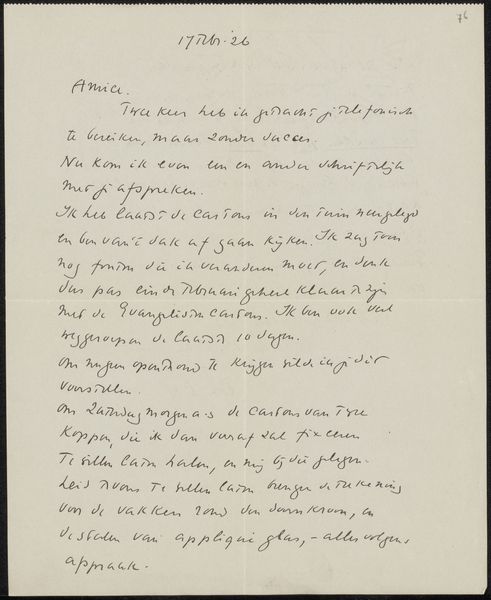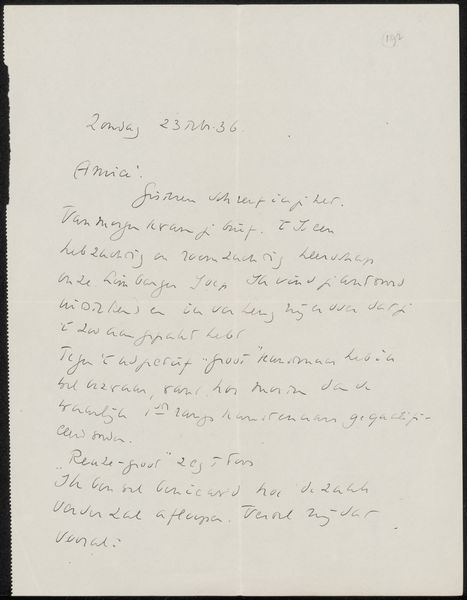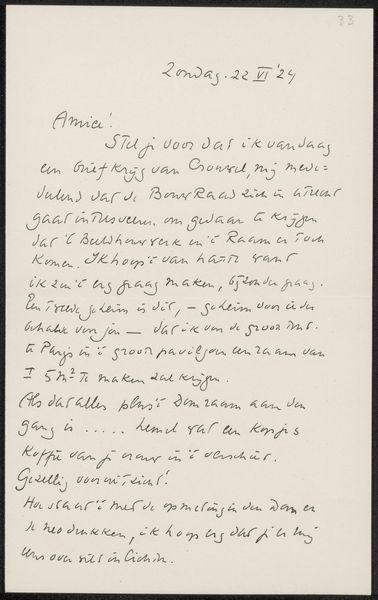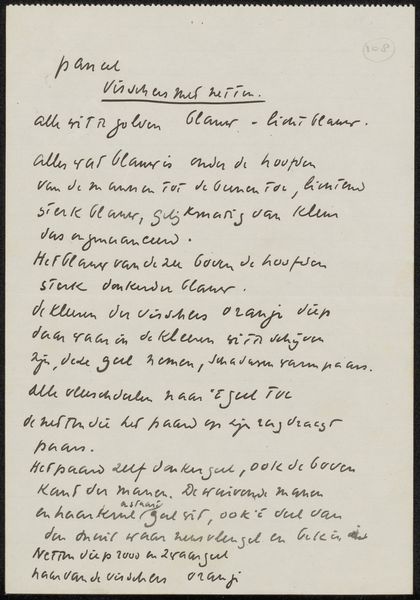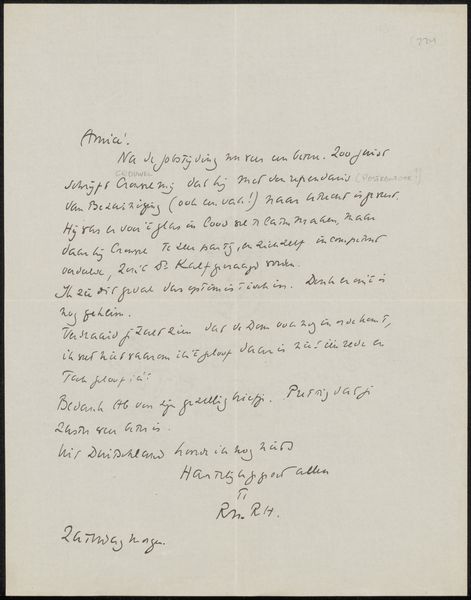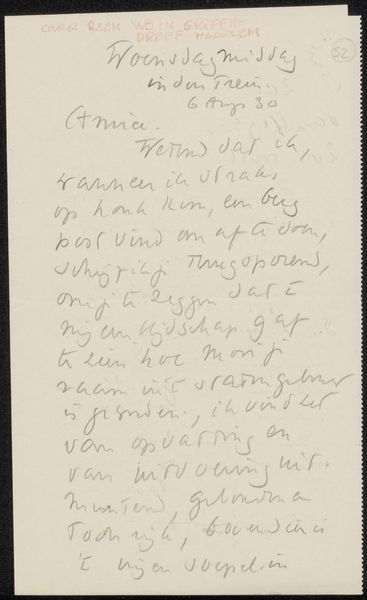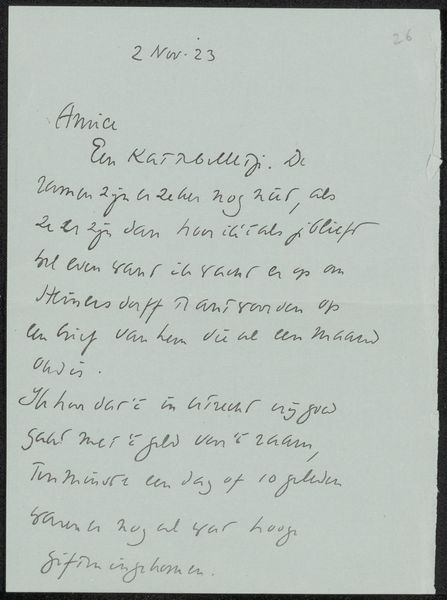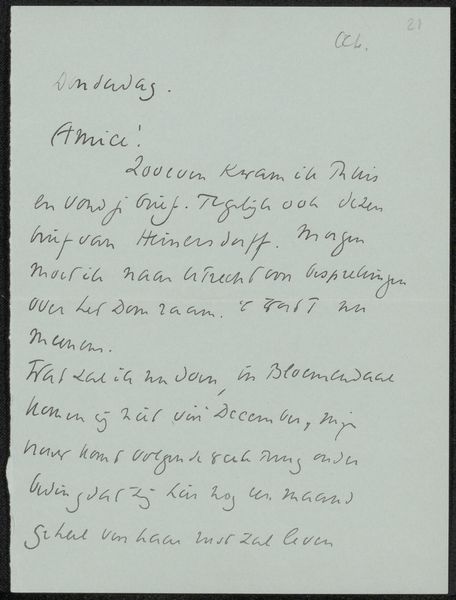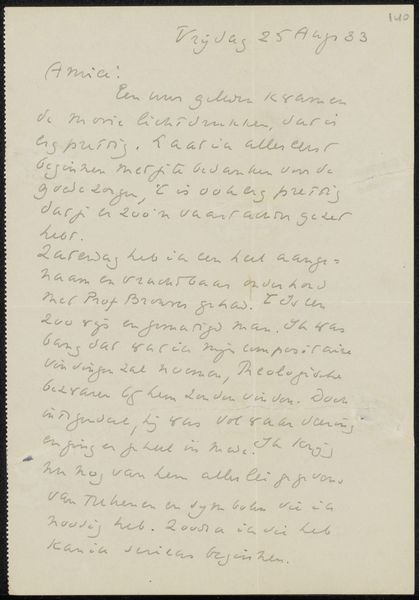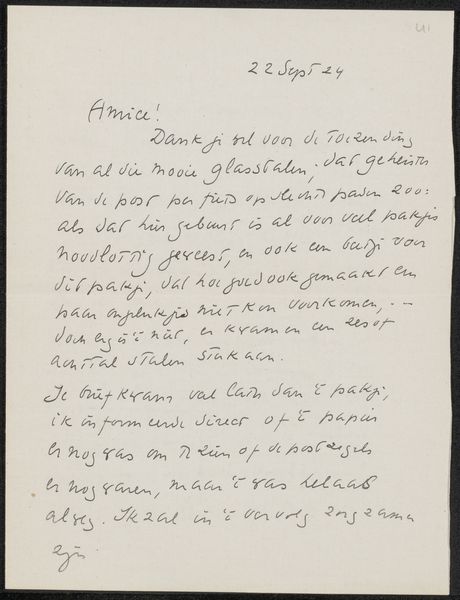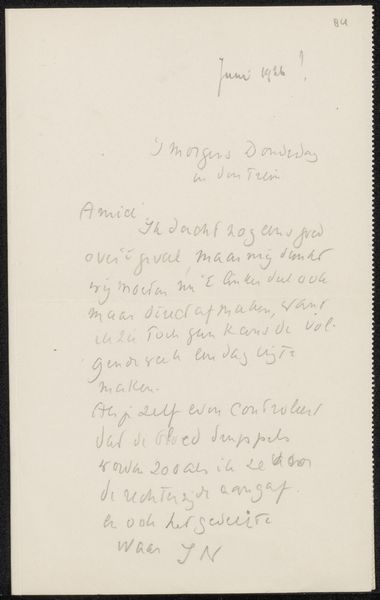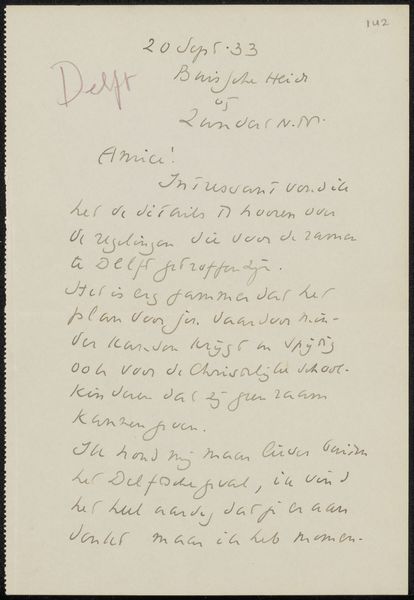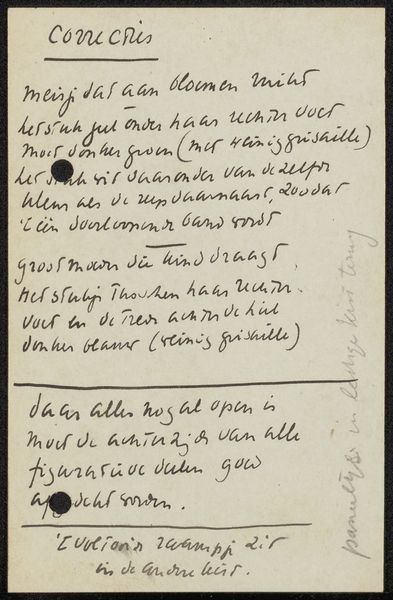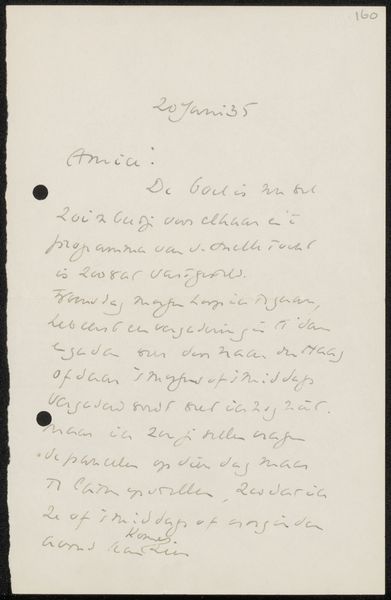
drawing, textile, paper, ink, pen
#
drawing
#
ink paper printed
#
old engraving style
#
hand drawn type
#
textile
#
paper
#
personal sketchbook
#
ink
#
ink drawing experimentation
#
pen-ink sketch
#
ink colored
#
pen work
#
sketchbook drawing
#
pen
#
sketchbook art
Copyright: Rijks Museum: Open Domain
Curator: Here we have "Brief aan Jan Kalf," possibly from 1922-1926, by Richard Nicolaüs Roland Holst, housed in the Rijksmuseum. It's ink on paper. Editor: It looks like a handwritten letter or note, the kind of personal ephemera you might find tucked away in a drawer. I’m curious, what do you see in this piece? Curator: Well, first, I consider the materials. Simple ink and paper. Common, easily accessible materials suggesting a casualness, almost a democratisation of artistic expression. The act of handwriting, the pressure applied to the pen, the specific texture of the paper – these choices speak volumes about Holst’s process. Do you think the texture is important here? Editor: Definitely. The visible grain of the paper makes it feel tactile and intimate, like we’re holding it in our hands. It is very material and that is where the impact lies. Curator: Precisely. Then think about the social context. Letter writing was a crucial form of communication. Now look at the words themselves. A 'Brief', implying a formal or professional interaction that would have class and professional implications that are in stark comparison with today's equivalent. Editor: So the form contrasts with its potential purpose. That interplay reveals more about the world surrounding the artwork. I've not thought of that before. Curator: The availability and use of inexpensive materials democratizes the creation process while simultaneously referencing power and class struggles. Ultimately, Holst makes us question the separation between art and everyday life, high culture and popular practice. This artwork speaks of this world. Editor: I’m starting to see this not just as a simple note but as a cultural object reflecting the means of production and social exchange. Curator: Exactly! Now we're talking.
Comments
No comments
Be the first to comment and join the conversation on the ultimate creative platform.
